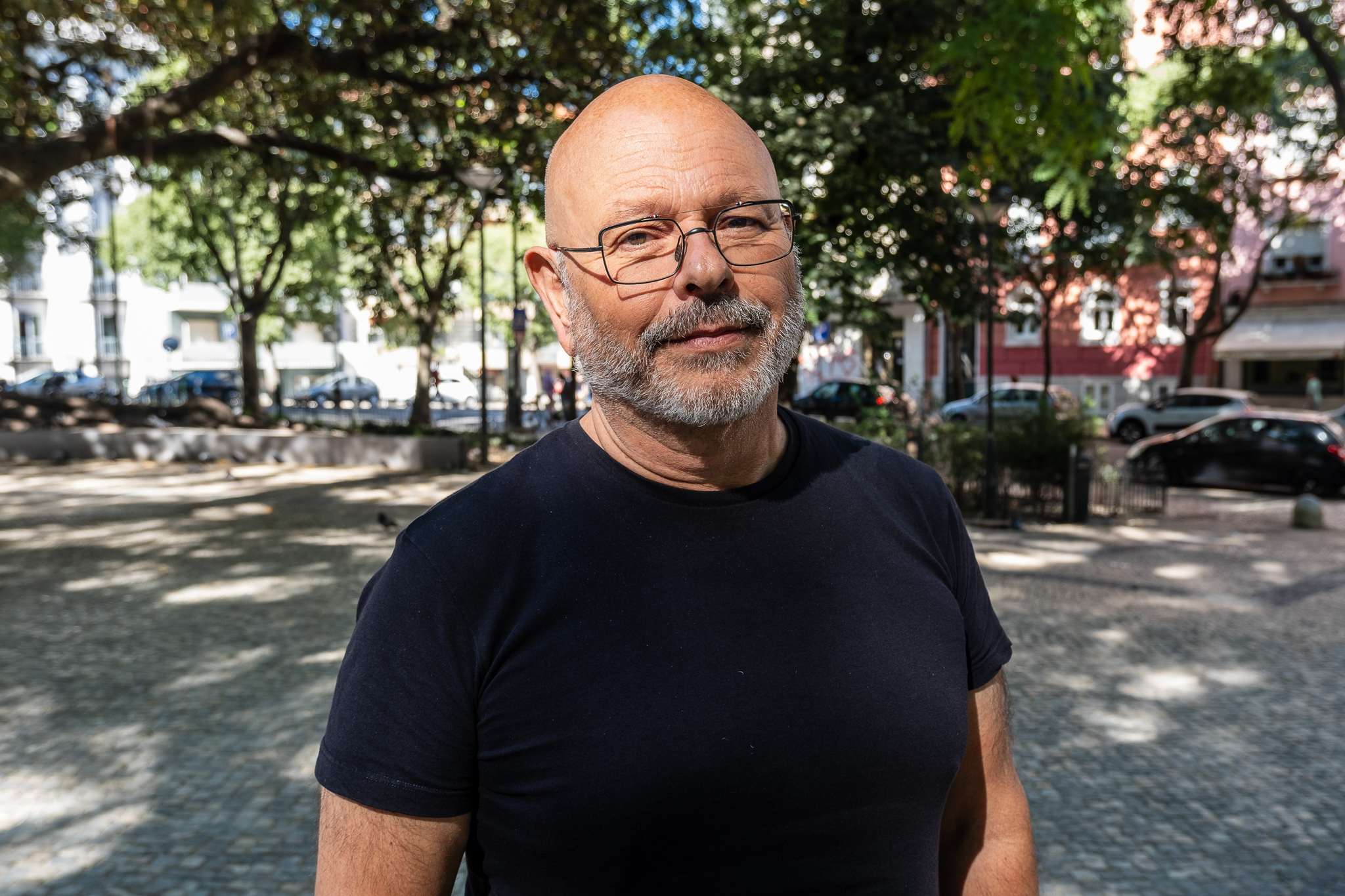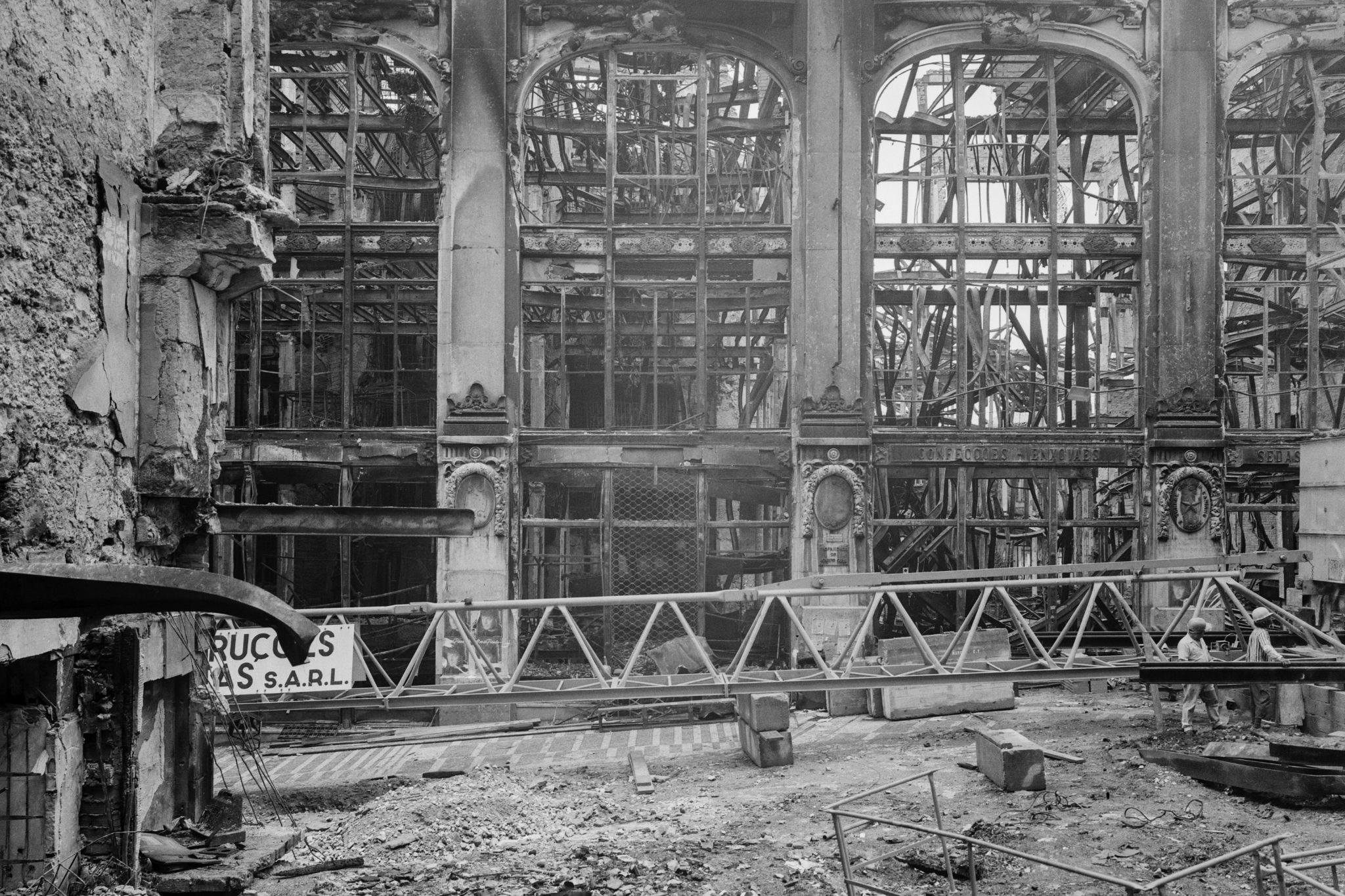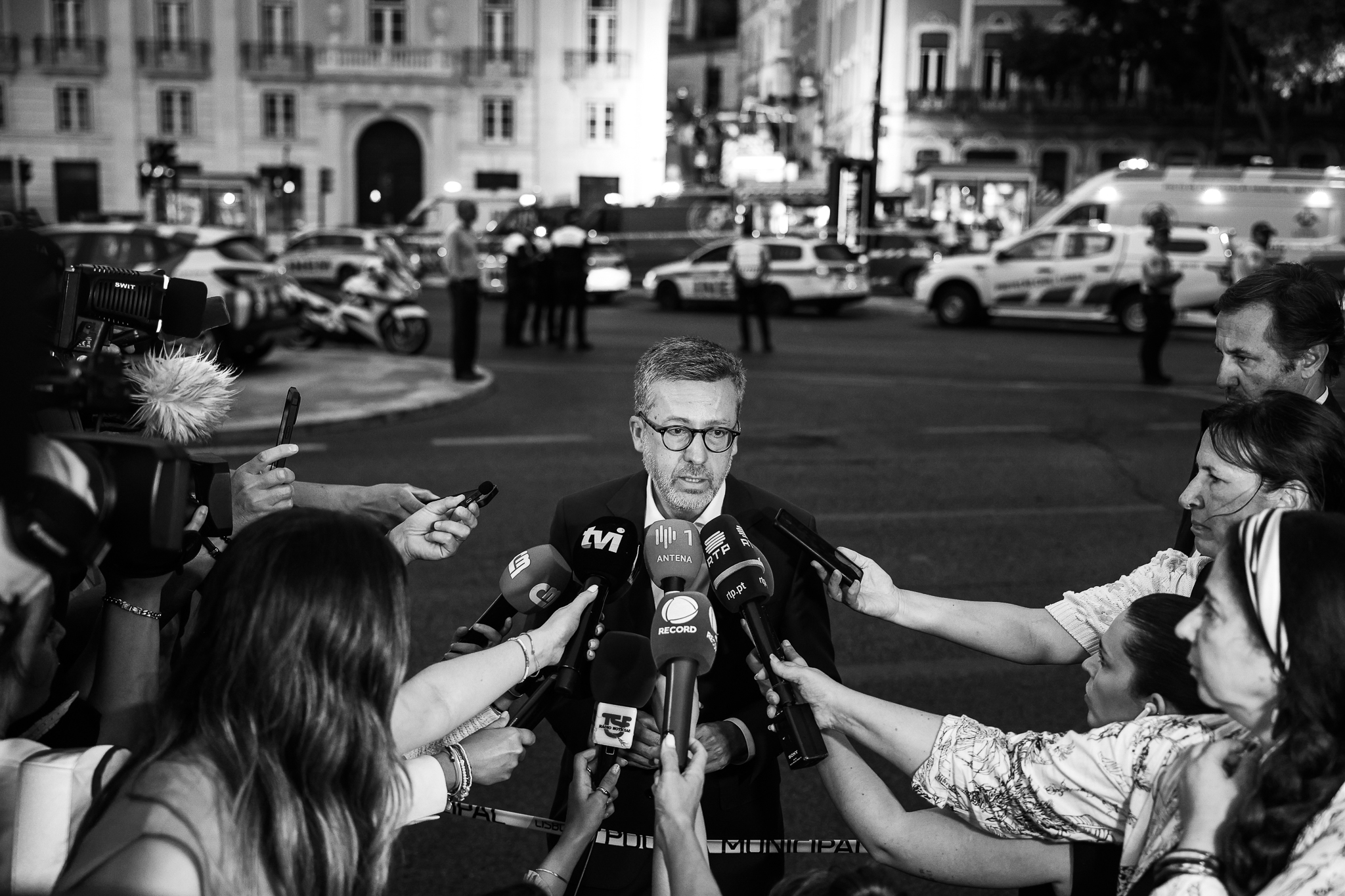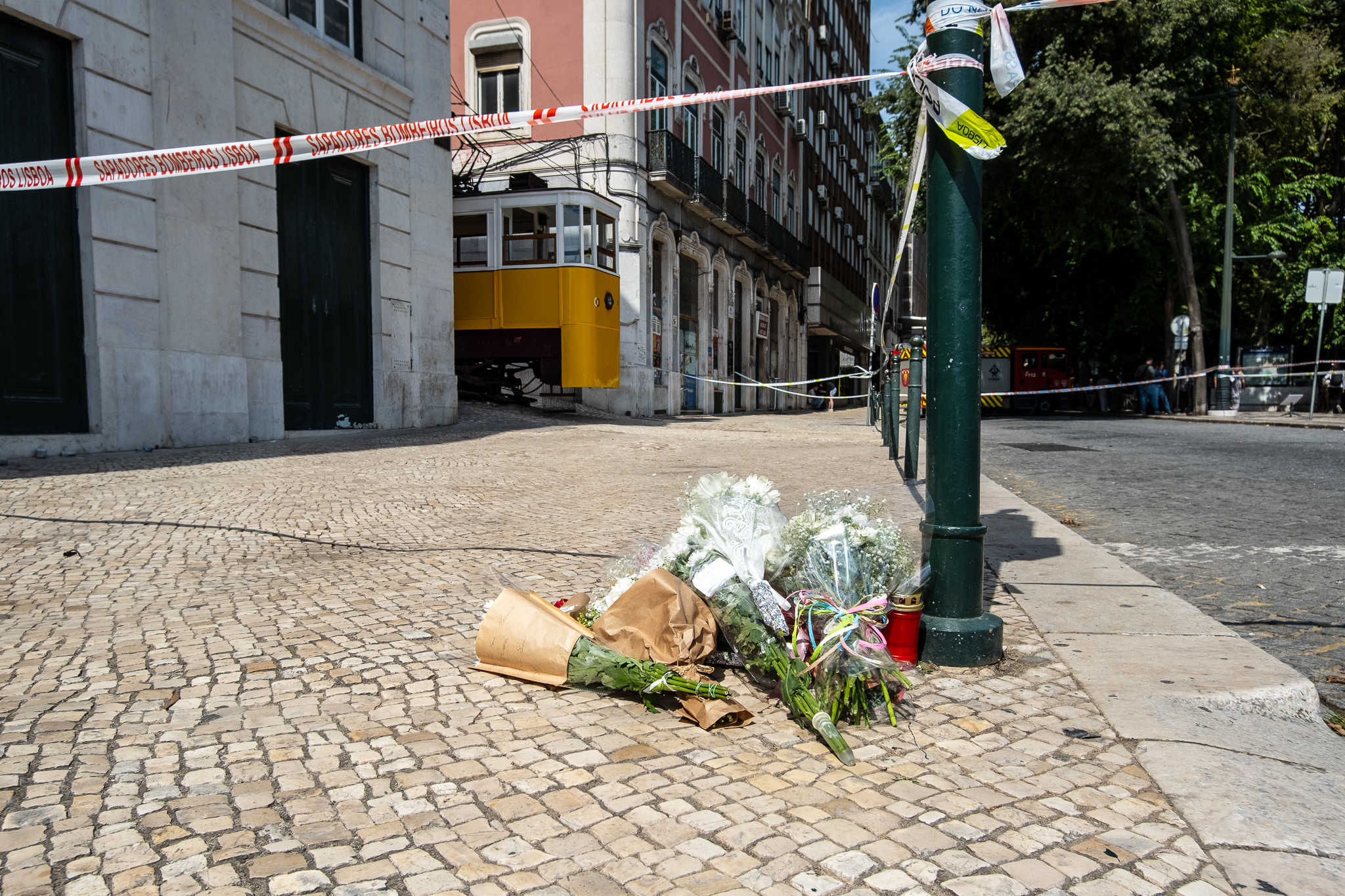Why can't a citizen create a garden in their street and take care of it? If you live, work or study in the parish of Alvalade, in Lisbon, you can. The parish council has launched a regulation that is unprecedented in the country and allows anyone to apply to take care of a...

Why can't a citizen create a garden in his street and take care of it? If you live, work or study in the parish of Alvalade in Lisbon, you can. The Parish Council has launched a scheme which is a first in the country and allows anyone to apply to have a green space treated on their doorstep. The regulation lays down some rules, such as the species that cannot be planted, the ban on the use of chemical herbicides and pesticides or the ban on the installation of fences.
So you can create and care for a garden in Alvalade, you need to submit an application to the Parish Council, indicating on a short form where you would like to have such a garden and how you intend to develop it, and then send that document to the email box geral@jf-alvalade.pt. You can attach additional elements to the proposal such as photographs or drawings. The Council will analyze the applications and authorize or not the creation of urban gardens for each citizen, who must, as mentioned, live, work or study in the parish.
The Junta de Freguesia de Alvalade intends, in this way, to create a network of small urban gardensThis may eventually be extended to other parishes in the city, if the municipality so wishes. The Junta also says that in special cases it may directly assign urban gardens that have proven to already occupy the space with gardening activity, or even authorize the use, on a precarious basis, of small spaces or even pots, outside the network of small gardens of Alvalade, upon proposal of the interested party.
Nuno's garden that the Junta destroyed
The regulation created by the Junta de Freguesia de Alvalade is unique in the city of Lisbon and will probably be unprecedented at national level. In fact, there is little culture of caring for public space in Portugal because "people only see the city from the doorstep inwards and wait for someone else to take care of what's outside", says Nuno Prates, 54, a gardener, furniture restorer and local accommodation business owner. "I've paid fines for... planting." Nuno has always lived in Arroios and has been working in the parish of Alvalade for about three years. The confinement led him to create a small garden outside his studio, located in an old garage on the first floor of number 20 of Rua General Pimenta de Castro. This is now also the address of Donated Plants Garden.

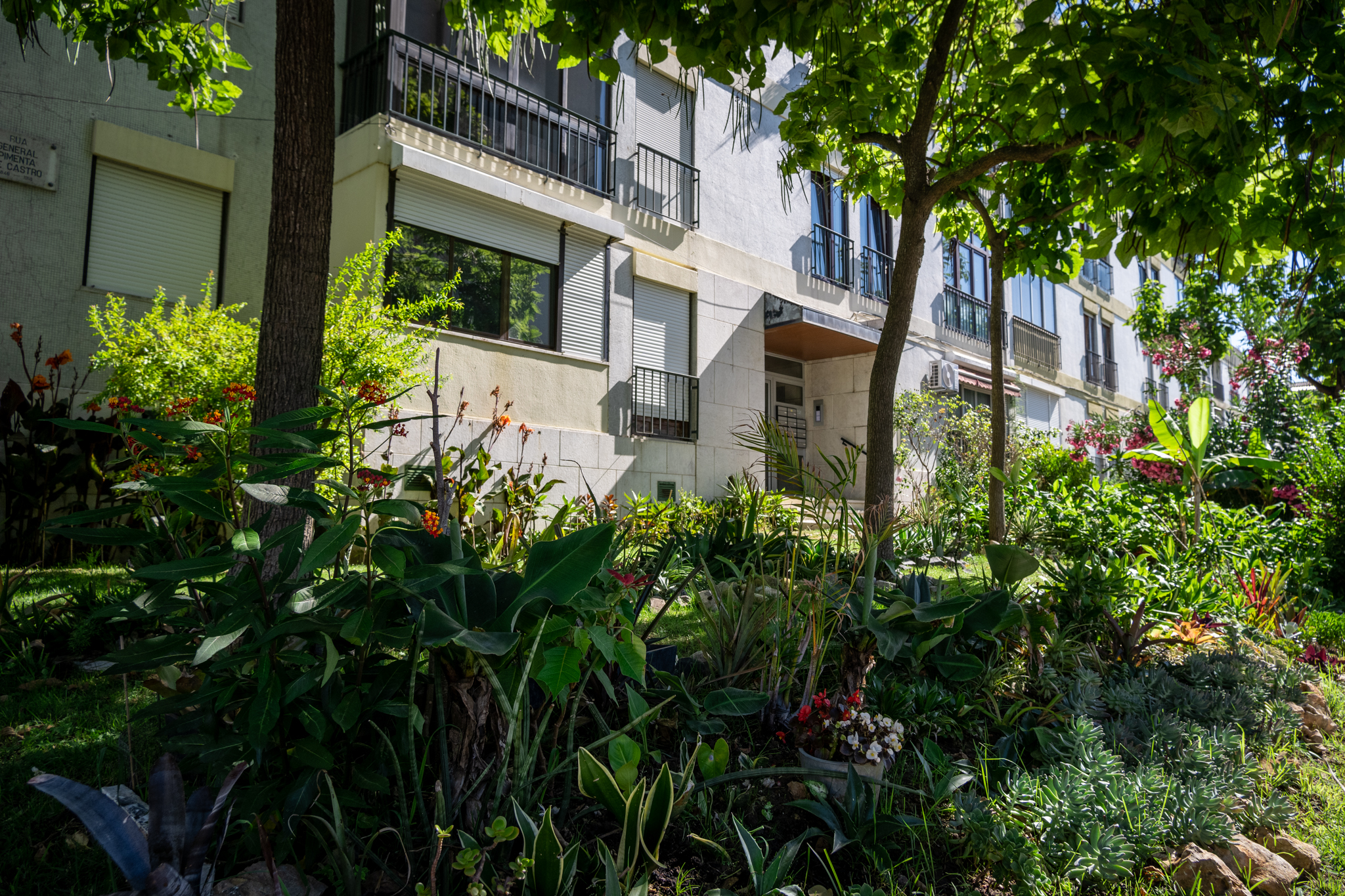
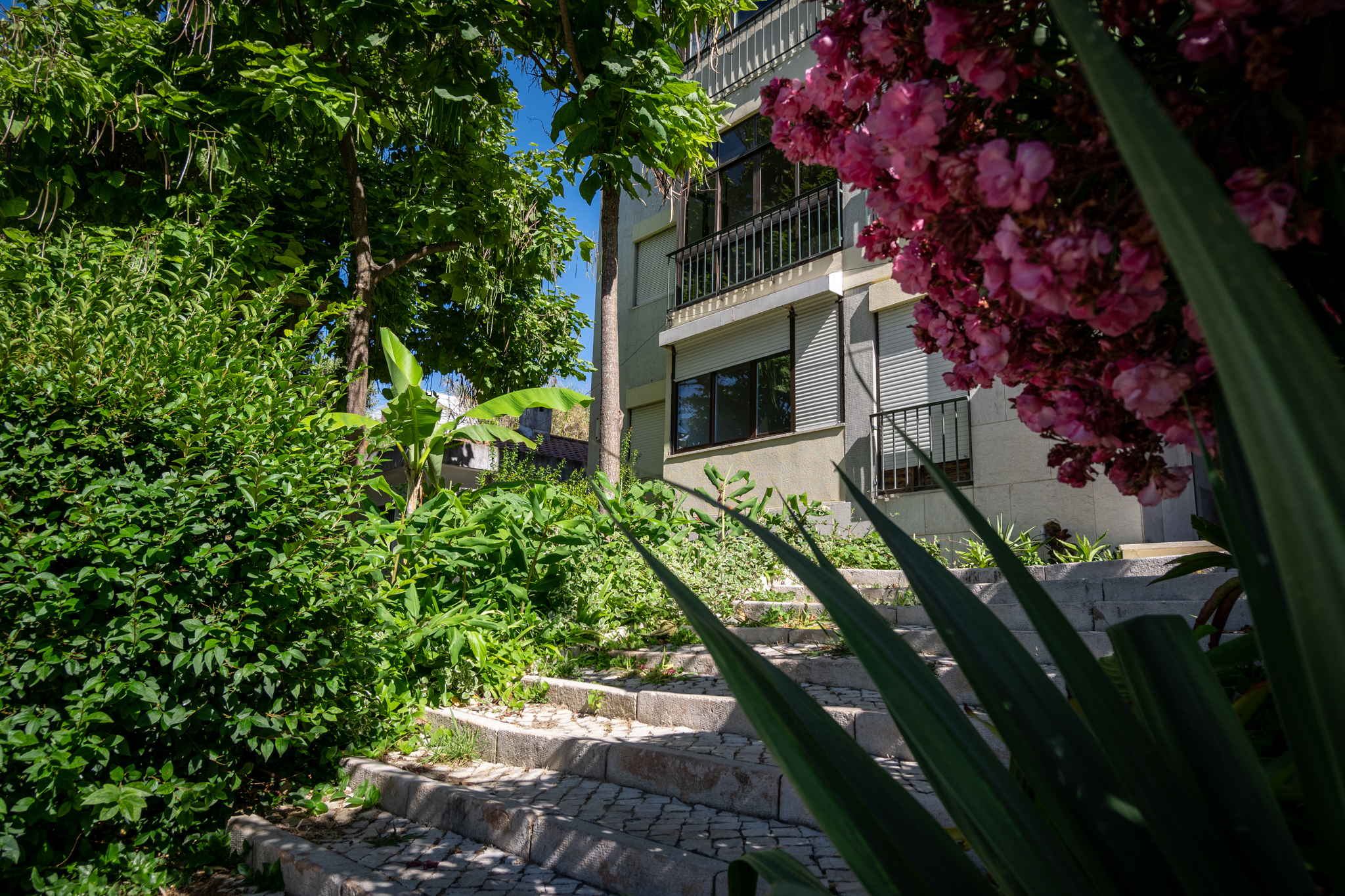

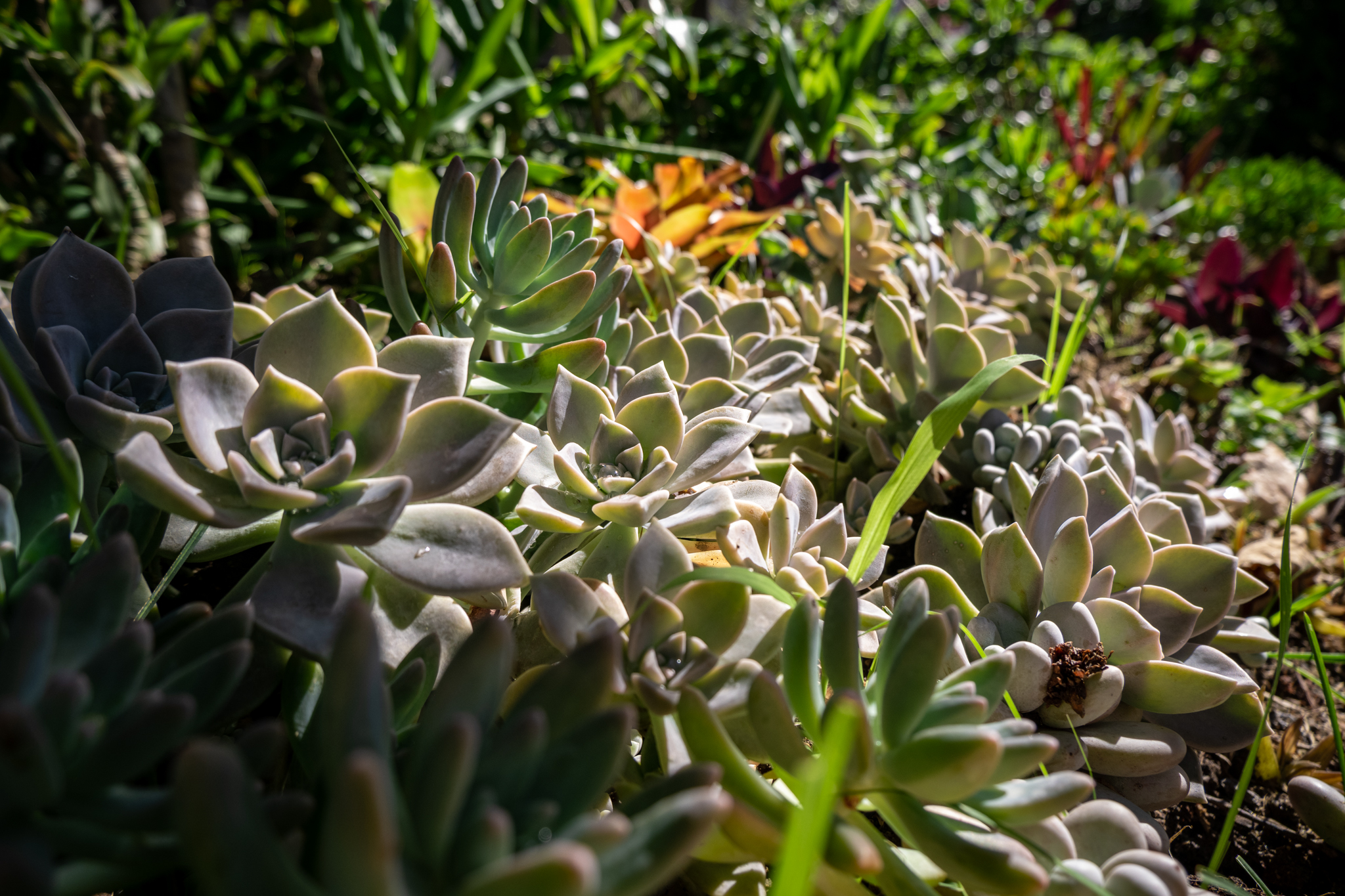
We went to meet Nuno on a sunny morning - when the light will be more even and better for photographs. The studio was hidden behind a green wall - a cool barrier to give the space more privacy and allow Nuno, when he looks outside, to see plants instead of stopped cars. A strong railing, the one from the stores, prevents us from entering. We knock on the glass because there is no doorbell. From inside comes soft music from Spotify (there is a computer on the table as if to indicate that something has been interrupted or that the working day is about to begin). The room is dark and you can't see much, but you can spot several pieces of furniture and antique pieces that seem to have nothing to do with each other but make sense together. "Would you like a coffee or a water?"Nuno asks when he sees us at the door (he didn't hear us knock, he must have been busy with something). "No, thank you. I'm fine. Can we go outside?"
The Garden of Donated Plants starts at the door of Nuno's studio and extends along the green corridor in front of the building. When Nuno started planting in September 2020, his garden did not yet have a name, nor was there any intention of giving it one. Nuno just wanted to take care of the green space in front of the building that the Parish Council seemed to despise and that no one else had decided to get their hands on. He says the lawn was dry because the sprinkler wasn't working, and he tried to warn the council but to no avail. It was then that he decided to contribute. The Garden of Donated Plants was born with leftovers from the gardens that his profession led him to do and, in the meantime, also from plants that neighbors and other people started leaving on his doorstep. Nuno looks at the garden as a kind of art gallery, an author's piece, a curated garden. "It's my collection" and a collection that she is happy to share with the community.
Nuno is proud to have plants there that are not common in public spaces "because they are usually stolen". He says he likes the diversity and the more tropical feel he is giving the garden, and regrets that the city's green areas always have the same species. "You can clearly see that it is planted by someone and not by a council or a municipality." Nuno says they have never taken a plant to him - there seems to be an empathy. There are pineapples, bananas, mangoes, papayas and physalis, among other species; Nuno explains that the growth of the species can be controlled so that they gain the size that their caretaker wants. António, a homeless man who lives next to the building, is a kind of "guardian of space". He always knows what's going on with the garden and recognizes the different species; he's barely seen the phalia, "he said straight away that the first fruit was for him"Nuno tells us that he talks to him regularly - he says he'll go on to higher education, but alcohol has taken its toll on him.
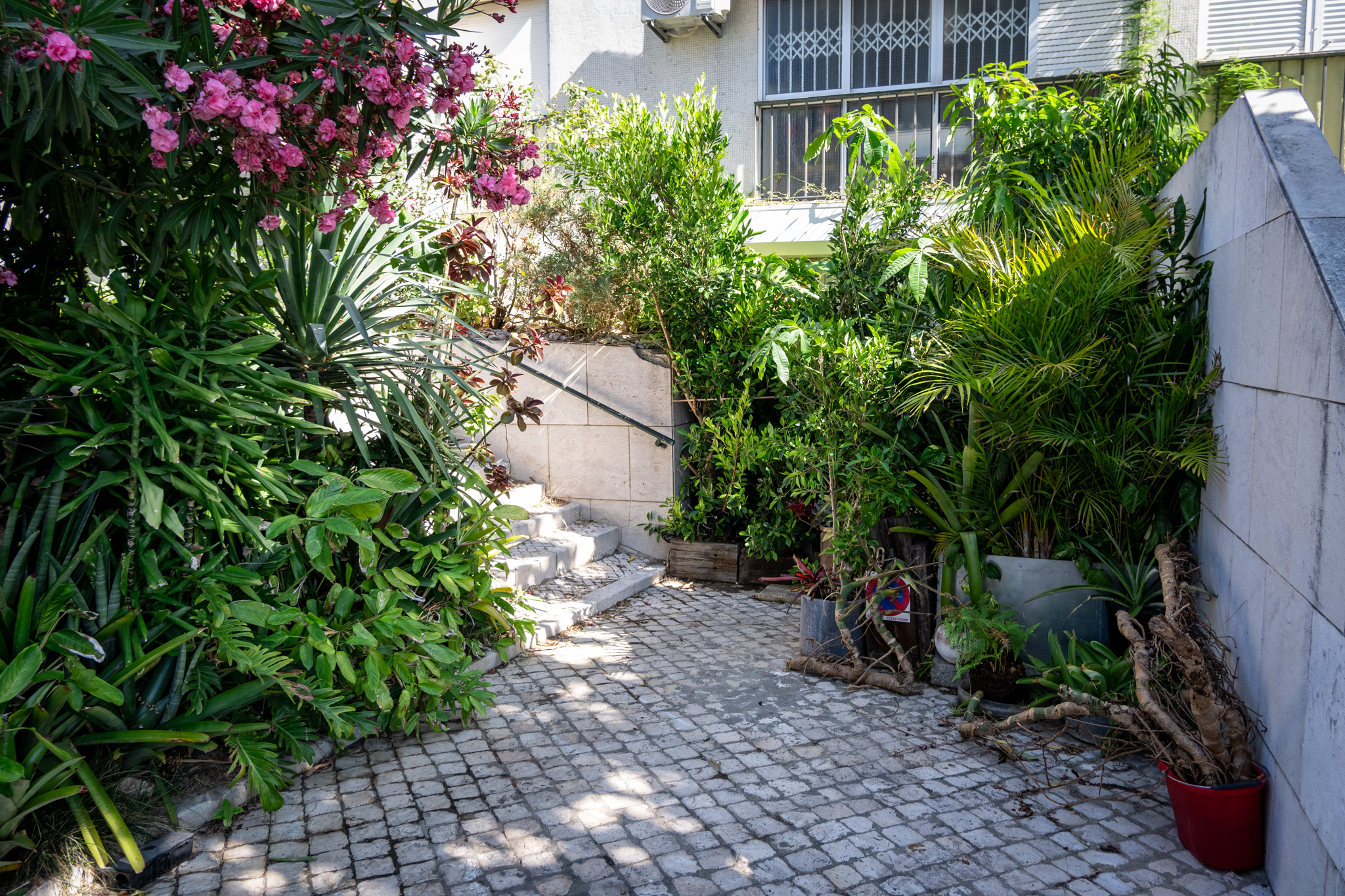
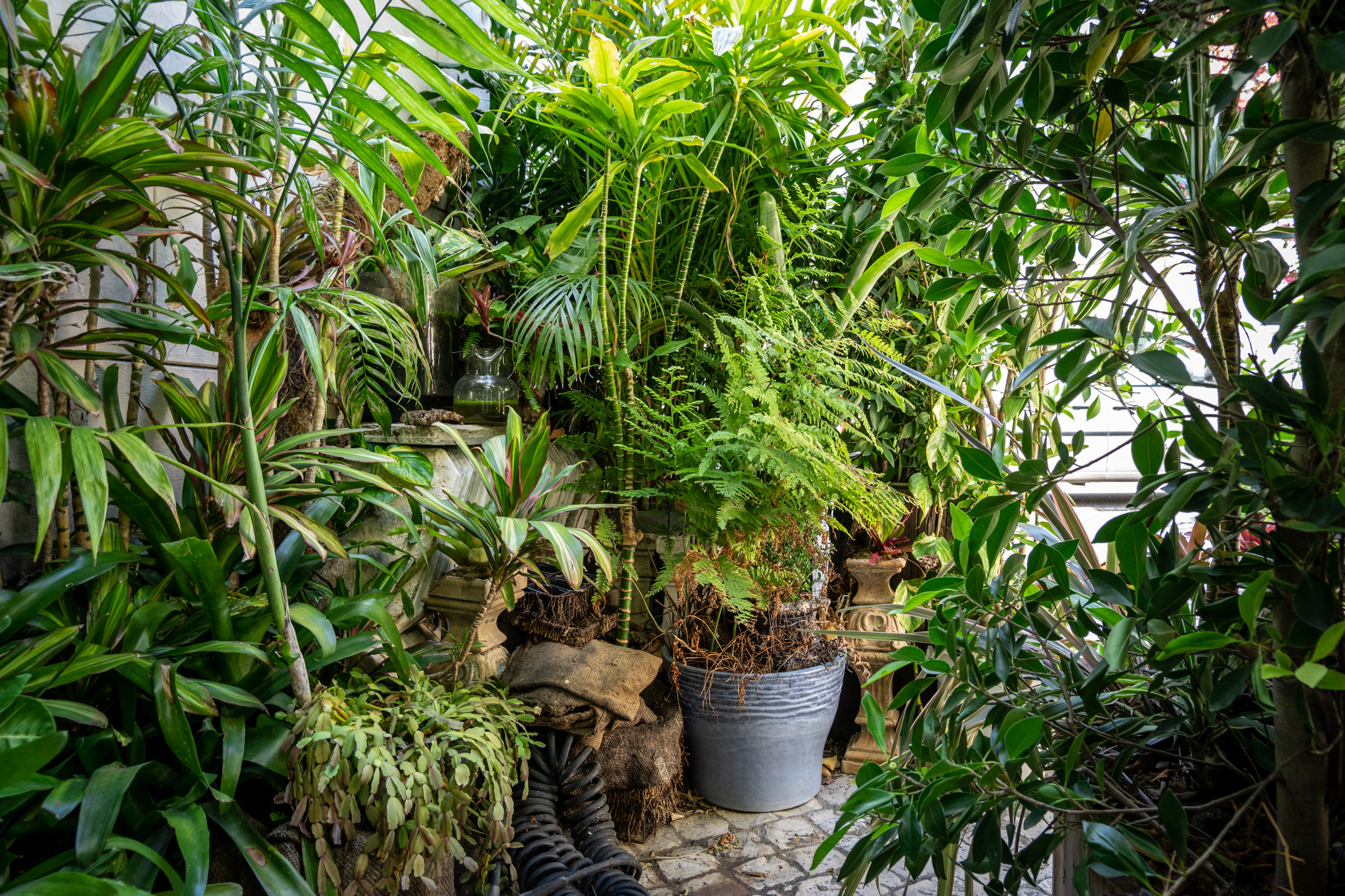

The Garden of Donated Plants, which has been "fruit of confinement" from Nuno in the fall of last year, arrived in January 2021 with a hitch. A complaint from a neighbor, concerned about some species that Nuno was planting, led the Alvalade Parish Council to destroy part of the garden overnight. The only reason they didn't clear the whole plot was because of a wave of popular protest, both on site and on social media. "They notified, they asked, they showed interest"This should have been the attitude of the Junta de Freguesia according to Nuno, and not the removal of his work from one moment to the next. At least they left the plants uprooted at the entrance to the studio, he says. The popular mobilization that prevented the Junta from continuing with the destruction of the garden also led to a parish executive official going to meet Nuno to apologize for the decision taken and even offer another flower bed to take care of. But Nuno wanted the one on his doorstep that he had started to tend because he was careless.
A mistake with a happy ending
The error recognized by the Parish Council internally and externally led to the regulation now in place and published in Diário da RepúblicaThis was done last May. The regulation was drafted by the Board with the help of Nuno and Leonardo RodriguesLeonardo is 26 years old - a job that combines the will of the people with the technical and legal knowledge of a local authority. Leonardo is passionate about gardens - he likes to write about them, photograph them, take care of them - and now heads a local list for the parish of Alvalade. But when he met Nuno, he was just a citizen like the others, concerned about the city and his neighborhood. It was Leonardo who named the space "Jardim das Plantas Doadas" (Garden of Donated Plants) and who created a Google Maps entry. When he learned of its destruction by the Junta, he echoed the case through social networks and helped to mobilize people.

Nuno looks at Leonardo as a different generation to his own, with communication and activism skills that Nuno says he doesn't have. "I just plant." Nuno had already tried to plant flowers around the tree beds in Arroios, but they were uprooted. But he carried on, even after being fined. His generosity, his willingness to take care of what belongs to everyone and to give his energy and time to make the street more beautiful, speaks louder. For this gardener, professional and amateur, the city is also his from the doorstep and he likes to take care of it even if the neighbors make fun of him. And they have. Now they respect him, perhaps because they have read or seen his story in the media. "A neighbor saw me picking up garbage from the street [because the men who collect the garbage at night leave trails of dirt behind for the sweepers to pick up later, but there are no sweepers in the studio area] and asked me if I could wash his car too." And Nuno did wash it, even though he knew he was being made fun of. A few days later, the same neighbor passed him half-heartedly, he says. "Maybe he read the story here from the garden."
The strangeness of seeing someone taking care of your street, the street where you live, where you work, where you pass, will be something culturally strange in Portugal. Nuno details that it was the foreigners who came to talk to him the most while he was cultivating the garden, and that he noticed that some neighbors even wanted to strike up a conversation but just stared, shyly away. In Paris, the local authority has had since 2002 a community garden program, allowing people living in the city to grow flowers and plants, and to take care of them following a regulation. But Paris is not unique in this type of program and regulations.
The regulation of the Alvalade Parish Council is the culmination of a story with a happy ending: it is the story of a citizen who decided to take care of an abandoned garden in the parish and who saw, for a moment, the Council destroying his work, but then admitting the mistake, creating, with that citizen, a beneficial solution for both parties and, above all, for the community. Now, Nuno can continue to plant, but now he does so within a legal framework that protects and supports him; and, like Nuno, other citizens can also plant. If you are related to Alvalade and want to have your garden in the parish, you can read the regulation here and arrange your application through of this form.


